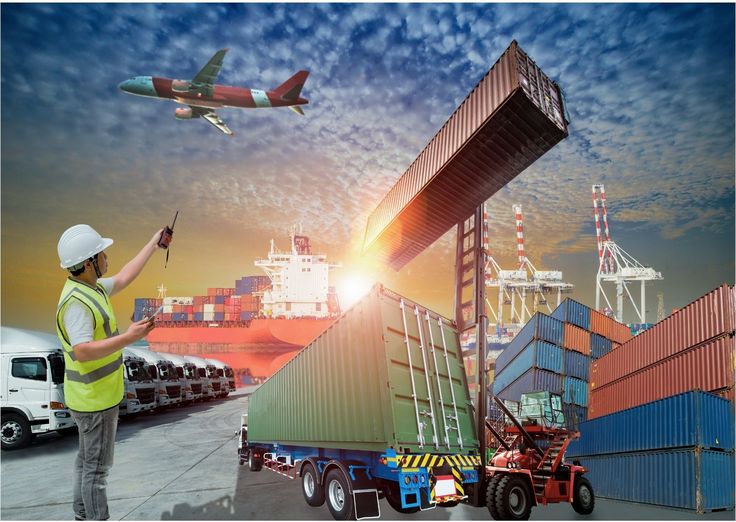Welcome to Express Global
LCL Freight - Less than Container Load Services
Ship Suppliers and Ship Chandler Industry

Business Verticals
LCL Freight
Less than Container Load (LCL) shipping is a cost-effective solution for transporting smaller quantities of goods that don't require a full container. In LCL shipping, multiple shipments from different customers are consolidated into a single container, allowing businesses to share transportation costs. It typically involves multiple stops and transfers, making it essential to package items securely to prevent damage. LCL/LTL services are widely used in logistics to optimize space utilization, reduce transportation costs, and ensure timely deliveries for

Welcome to Express Global
Our goal is to simplify the complexities of LCL shipping, offering flexible, cost-effective, and efficient solutions that cater to the unique needs of each client. With our deep understanding of logistics, we ensure seamless handling of LCL shipments, ensuring your goods reach their destination safely and on time.
LCL Advantages

Improved Supply Chain Management
LCL offers strategic advantages that go beyond cost savings. It helps businesses control inventory by enabling smaller, more frequent shipments, reducing the need for excess storage, and keeping supply chains responsive to fluctuating demand. Efficient Inventory Management: LCL allows for better inventory control, especially for goods that are produced in smaller batches or require more frequent deliveries.

Efficient Use of Resources
This is where Less-than-Container Load (LCL) shipping helps by consolidating multiple smaller shipments into one container, LCL shipping allows businesses to stay flexible, minimize financial exposure, and respond to fluctuating market demands without overcommitting resources or full container loads. Optimized space usage ensures cost efficiency and sustainability by minimizing unused container space.

Streamlined Customs and Documentation
Freight systems specializing in LCL shipping often have deep knowledge of customs regulations and procedures for various countries, ensuring a smoother clearance process. Enhanced logistics support for smoother customs clearance and documentation, reducing delays and ensuring compliance with global regulations.

Cost-Effective for Small Shipments
LCL allows businesses to ship smaller quantities without paying for an entire container. You only pay for the space your goods occupy within the container, which helps reduce unnecessary shipping costs. Businesses can avoid high costs associated with FCL shipping while benefiting from efficient space utilization in shared containers.
Global Reach for Smaller Businesses
LCL enables small and mid-sized companies to participate in international trade without the requirement to ship in large volumes. This levels the playing field and opens up global markets.
Simplified Supply Chain Management
Freight forwarders often manage the complexities of LCL, such as cargo consolidation, documentation, and customs clearance. This simplifies logistics for businesses and allows them to focus on core operations.
Advantages of LCL service with Express Global

Cost-Effective Shipping
LCL allows you to pay only for the space your cargo occupies in a container, reducing costs compared to booking a full container when not needed. It eliminates the need for businesses to wait until they have enough cargo to fill an entire container.

Frequent Schedules
Freight Systems provides regular LCL schedules, ensuring that shipments are moved promptly without unnecessary delays.

Efficient Consolidation
Freight Systems consolidates multiple LCL shipments into a single container, ensuring optimized space utilization and reduced overall shipping costs.
Advantages of LCL service with Express Global

Automation and Artificial Intelligence (AI)
Implementation of AI-driven tools for real-time tracking, demand forecasting, and route optimization. Automating repetitive tasks to reduce manual errors and improve efficiency.

Sustainability and Green Logistics
Adoption of eco-friendly practices such as electric vehicles, alternative fuels, and efficient packaging. Reducing carbon footprints by optimizing supply chain operations.

Blockchain for Transparency
Enhancing transparency and trust in the supply chain using blockchain for secure and traceable transactions. Eliminating fraud and reducing disputes with immutable records.

Adoption of Autonomous Vehicles
Introducing self-driving trucks and drones to revolutionize last-mile delivery. Reducing reliance on human drivers and ensuring 24/7 operations.
FAQs
LCL stands for Less-than-Container Load. It refers to shipping cargo that doesn’t require a full container.
In LCL shipping, multiple shipments are consolidated into a single container.
It is cost-effective for smaller shipments and reduces the need for a full container.
Demurrage is a charge for keeping loaded containers at the port beyond the allowed free days. Detention is a charge for holding containers outside the port after picking up and unpacking the shipment.

.svg)